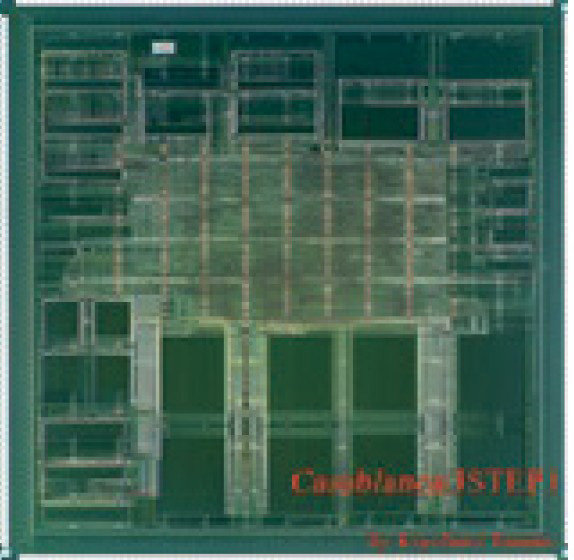
Let’s build high-performance computers
Laboratory on Computer Architecture
Professor:TANAKA Kiyofumi
E-mail:
[Research areas]
Computer Architecture, Real-Time Embedded Systems
[Keywords]
Memory system, Caches, energy reduction, FPGA, real-time scheduling, embedded OS
Skills and background we are looking for in prospective students
Our researches are based on knowledge of “Digital Logic and Computer Design”, ”Computer Architecture”, and “Operating Systems”. In most researches, sufficient skills for programming as well as enthusiasm for high performance and/or energy reduction are required.
What you can expect to learn in this laboratory
By carrying out researches, students are well-trained for various, important ability for investigation, problem finding, resolution, planning, implementation, evaluation, writing reports, and presentation, which are all required in the future career. In particular, from experience of designing computer hardware logic, they can learn to image concurrent behaviors of objects and realize them, leading to issue resolution.
【Job category of graduates】 Information/communication-processing industry
Research outline
In our life environment, computers are embedded everywhere, e.g., mobile phones, home appliances, networking equipment, and vehicles, where real-time property is often required. Along with growing demands for IoT devices, we study how to build systems with efficient real-time processing, from a viewpoint of both hardware and basic software. Especially, we design actual systems for empirical researches.
■ Real-time embedded systems
Real-Time Embedded RISC Processor Embedded processors must have low cost and low energy consumption. In addition, response performance is important for control applications. We extend conventional RISC architecture and design real-time embedded RISC core with multi-contexts And efficient cache memory, which makes response performance much higher.
Embedded processors must have low cost and low energy consumption. In addition, response performance is important for control applications. We extend conventional RISC architecture and design real-time embedded RISC core with multi-contexts And efficient cache memory, which makes response performance much higher.
Real-Time Embedded Operating System
In real-time systems, high response time performance as well as meeting real-time constraints is important. To improve the response time, use of appropriate scheduling policies is indispensable. We develop real-time embedded operating systems which improve real-time processing as much as possible by taking dynamic behavior into account while conforming to the common API standard of embedded operating systems
■ Cryptography Accelerator
Cryptography is indispensable in today's ICT environments. Especially, in embedded/IoT devices, compact and efficient processing of cryptography should be provided. We provide cryptography systems dedicated to embedded systems by designing elliptic-curve cryptography (ECC) accelerators on FPGAs. The advantages are acceleration with parallelism based on dataflow and resistance to side-channel attacks.
■ Other researches
Accelerators for Deep Learning Hardware, Adaptation/configuration of processors/OS, system implementation on FPGA, low-energy consumption architecture, real-time resource management, implementation of RISC-V processors, etc.
Key publications
- Y.Chen, K.Tanaka, “Better Scalability: Improvement of Block-based CNN Accelerator for FPGAs,” IEEE Access, Vol.12, pp.187587-187603, 2024.
- N.Yokoyama, K.Tanaka, “Container Auto-scaling System Using Sliding-Window Regression with Fuzzy Entropy,” Journal of Information Processing, Vol.32 pp.916-928, 2024. (Recommended Paper)
- T.Suzuki, K.Tanaka, “Real-time Scheduling Algorithm with Execution Right Delegation for Multiprocessor,” Journal of Information Processing, Vol.31, pp.67-77, 2023.
Equipment
Linux servers and storages
FPGA evaluation boards
FPGA development environment
CAD/Verification tools
Measuring equipment (oscilloscope, logic analyzer)
Teaching policy
We have a laboratory-local seminar once a week and one-on-one meeting/discussion every day. In the lab local meeting, all members deal with the common issues to learn to read literature, understand it, and explain the content in his or her own words. In the one-on-one meeting, the student and supervisor set a short-term goal of research and discuss about how to achieve it. The supervisor gives advices to students, while the students are supposed to solve each problem by their own.
[Website] URL : https://www.jaist.ac.jp/is/labs/tanaka-lab/